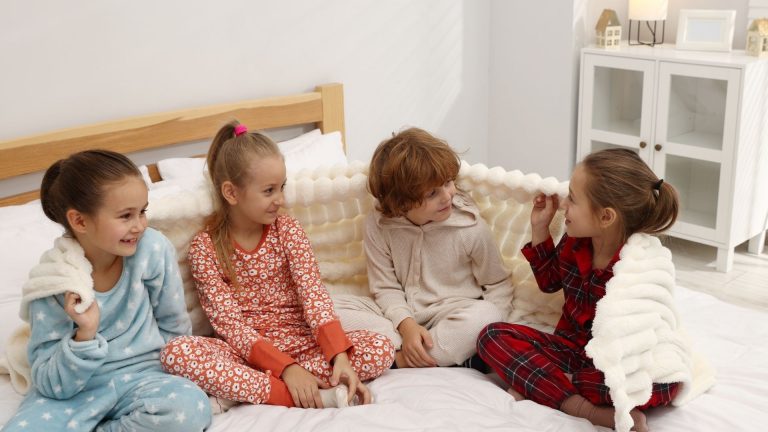187 Beautiful Choctaw Names and their Meanings

Have you ever wondered what story your name tells about you? For the Choctaw people, names aren’t just what you’re called—they’re who you are. What makes these names so special?
The Choctaw, one of North America’s most historically important tribes, use names as carriers of meaning. Your name might connect you to an animal’s strength, a river’s persistence, or a valued character trait.
Think about it: In a world where names are often chosen for how they sound, Choctaw names serve a deeper purpose. They link individuals to family stories, community values, and the natural world.
They’re like small poems that capture hopes, observations, and connections. Ready to learn what these meaningful names reveal about this remarkable culture?
History and Meaning of Choctaw Names

The tradition of naming within Choctaw culture dates back centuries, rooted in their deep connection to the land.
Historically, the Choctaw people occupied territories in what is now Mississippi, Alabama, and parts of Louisiana before many were forcibly relocated to Oklahoma in the 1830s.
Names in Choctaw society often reflected:
- Natural elements and phenomena (stars, rivers, weather patterns)
- Animal characteristics admired by the community
- Spiritual concepts central to Choctaw belief systems
- Personal characteristics hoped for in the child
- Notable events occurring around birth
The Choctaw language, part of the Muskogean language family, features distinctive sounds and structures that give their names a unique phonetic quality.
During periods when Native American cultural expressions were restricted, many Choctaw families adopted English names for official purposes while maintaining traditional names within their communities.
Male Choctaw Names and their Meanings

1. Ahyumah
Pronunciation: /ˈɑːhʊˌmɑː/
Meaning: A lucky man
2. Amokoli
Pronunciation: /ˈæmoʊˌkoʊli/
Meaning: Spring water
3. Aponi
Pronunciation: /ɑːˈpoʊni/
Meaning: Butterfly
4. Bena
Pronunciation: /ˈbɛːnɑː/
Meaning: Pheasant
5. Chata
Pronunciation: /ˈʧɑːtɑː/
Meaning: Choctaw person
6. Chulahoma
Pronunciation: /ˈʧʊˌlɑːhoʊˌmɑː/
Meaning: Red fox
7. Aduka
Pronunciation: /ɑːˈduːkɑː/
Meaning: Eagle
8. Hachi
Pronunciation: /ˈhɑːʧi/
Meaning: River
9. Haloka
Pronunciation: /ˈhɑːloʊkɑː/
Meaning: Flash of lightning
10. Hattak
Pronunciation: /ˈhɑːtɑːk/
Meaning: Man
11. Himona
Pronunciation: /ˈhiːˌmoʊnɑː/
Meaning: Sacred
12. Hoke
Pronunciation: /ˈhoʊki/
Meaning: Blue
13. Hushi
Pronunciation: /ˈhuːʃi/
Meaning: Sun
14. Ilohomah
Pronunciation: /ˈiːloʊhoʊˌmɑː/
Meaning: Thunder
15. Ittibachaffa
Pronunciation: /ˈɪtɪbɑːˈʧæfɑː/
Meaning: Standing alone
16. Kinta
Pronunciation: /ˈkiːntɑː/
Meaning: Beaver
17. Lusa
Pronunciation: /ˈluːsɑː/
Meaning: Black
18. Varek
Pronunciation: /ˈvɑːrɛk/
Meaning: Strong
19. Mochni
Pronunciation: /ˈmoʊʧni/
Meaning: Talking bird
20. Nahullo
Pronunciation: /ˈnɑːhʊloʊ/
Meaning: White person
21. Nanih
Pronunciation: /ˈnɑːni/
Meaning: Mountain
22. Tahlequah
Pronunciation: /tælɪkwɑː/
Meaning: Two mounds or Rock
23. Nita
Pronunciation: /ˈniːtɑː/
Meaning: Bear
24. Nittak
Pronunciation: /ˈniːtɑːk/
Meaning: Day
25. Opa
Pronunciation: /ˈoʊpɑː/
Meaning: Owl
26. Onnah
Pronunciation: /ˈoʊnɑː/
Meaning: Strength
27. Oski
Pronunciation: /ˈoʊski/
Meaning: Father
28. Pakali
Pronunciation: /ˈpɑːkɑːli/
Meaning: Flower
29. Paki
Pronunciation: /ˈpɑːki/
Meaning: Touch
30. Pila
Pronunciation: /ˈpiːlɑː/
Meaning: Throwing
31. Pisa
Pronunciation: /ˈpiːsɑː/
Meaning: To see
32. Pushmataha
Pronunciation: /ˈpʊʃmɑːˌtɑːhɑː/
Meaning: He has won all battles
33. Shawi
Pronunciation: /ˈʃɑːwi/
Meaning: Raccoon
34. Shikoba
Pronunciation: /ˈʃɪkəʊbɑː/
Meaning: Feather
35. Shilombish
Pronunciation: /ʃɪˈloʊmbɪʃ/
Meaning: Soul
36. Shokah
Pronunciation: /ˈʃoʊkɑː/
Meaning: Strong
37. Takcha
Pronunciation: /ˈtɑːktʃɑː/
Meaning: Deer
38. Talli
Pronunciation: /ˈtɑːli/
Meaning: Rock
39. Tapena
Pronunciation: /ˈtɑːpɛːnɑː/
Meaning: Sugar
40. Tashka
Pronunciation: /ˈtɑːʃkɑː/
Meaning: Warrior
41. Tikba
Pronunciation: /ˈtɪkbɑː/
Meaning: Tree
42. Tobi
Pronunciation: /ˈtoʊbi/
Meaning: White
43. Tocush
Pronunciation: /ˈtoʊkʊʃ/
Meaning: Tiger
44. Toli
Pronunciation: /ˈtoʊli/
Meaning: Ball (also a game)
45. Tushka
Pronunciation: /ˈtʊʃkɑː/
Meaning: Soldier
46. Tvnayimpa
Pronunciation: /ˈtvæːnɑːɪmpɑː/
Meaning: Trustworthy
47. Wakon
Pronunciation: /ˈwɑːkɑːn/
Meaning: Sacred
48. Yana
Pronunciation: /ˈjɑːnɑː/
Meaning: To go
49. Yoholo
Pronunciation: /ˈjoʊhoʊloʊ/
Meaning: The one who talks
50. Yukpa
Pronunciation: /ˈjʊkpɑː/
Meaning: Happy
51. Abahe
Pronunciation: /ˈɑːbɑːhe/
Meaning: Light
52. Achukma
Pronunciation: /ˈɑːʧʊkmɑː/
Meaning: Good
53. Atoka
Pronunciation: /ɑːˈtoʊkɑː/
Meaning: He brings peace
54. Chito
Pronunciation: /ˈʧiːtoʊ/
Meaning: Large
55. Chupa
Pronunciation: /ˈʧʊpɑː/
Meaning: Bear
56. Funa
Pronunciation: /ˈfuːnɑː/
Meaning: Water
57. Ishko
Pronunciation: /ˈɪʃkoʊ/
Meaning: Small
58. Kovi
Pronunciation: /ˈkoʊvi/
Meaning: Raven
59. Miko
Pronunciation: /ˈmiːkoʊ/
Meaning: Chief
60. Machi
Pronunciation: /ˈmɑːʧi/
Meaning: Man
61. Okla
Pronunciation: /ˈoʊklɑː/
Meaning: Person
62. Pocahontas
Pronunciation: /ˌpoʊkɑːˈhɑːntəs/
Meaning: Little mischief
63. Pukuna
Pronunciation: /ˈpʊkʊnɑː/
Meaning: Panther
64. Qai
Pronunciation: /ˈkaɪ/
Meaning: Flame
65. Sakima
Pronunciation: /ˈsɑːkɪmɑː/
Meaning: King
66. Shoma
Pronunciation: /ˈʃoʊmɑː/
Meaning: Bird
67. Tosca
Pronunciation: /ˈtɒskɑː/
Meaning: Eagle
68. Waya
Pronunciation: /ˈwɑːjɑː/
Meaning: Wolf
Female Choctaw Names and Their Meanings

69. Aba
Pronunciation: /ˈɑːbɑː/
Meaning: Stay at home
70. Achafa
Pronunciation: /ɑːˈʧɑːfɑː/
Meaning: Firstborn
71. Ahyoka
Pronunciation: /ɑːˈjoʊkɑː/
Meaning: She brought happiness
72. Amoya
Pronunciation: /ˈɑːmɔːjɑː/
Meaning: Rain
73. Anola
Pronunciation: /ɑːˈnoʊlɑː/
Meaning: Peace
74. Atohi
Pronunciation: /ˈɑːtoʊhi/
Meaning: Tree
75. Bihi
Pronunciation: /ˈbiːhi/
Meaning: Gum
76. Bini
Pronunciation: /ˈbiːni/
Meaning: Sister
77. Chahta
Pronunciation: /ˈʧɑːhtɑː/
Meaning: Of the Choctaw
78. Chapa
Pronunciation: /ˈʧɑːpɑː/
Meaning: Beaver
79. Chiska
Pronunciation: /ˈʧɪskɑː/
Meaning: Bird
80. Fani
Pronunciation: /ˈfæni/
Meaning: Squirrel
81. Foshi
Pronunciation: /ˈfoʊʃi/
Meaning: Feather
82. Halita
Pronunciation: /ˈhɑːlɪtɑː/
Meaning: Respected
83. Hokti
Pronunciation: /ˈhoʊkti/
Meaning: Woman
84. Hottak
Pronunciation: /ˈhɔːtɑːk/
Meaning: Brave
85. Hushasha
Pronunciation: /ˈhʊʃɑːʃɑː/
Meaning: Red
86. Itta
Pronunciation: /ˈɪtɑː/
Meaning: Earth
87. Issi
Pronunciation: /ˈɪsi/
Meaning: Deer
88. Ishto
Pronunciation: /ˈɪʃtoʊ/
Meaning: Big
89. Kapoli
Pronunciation: /ˈkɑːpɔːli/
Meaning: Panther
90. Kasa
Pronunciation: /ˈkɑːsɑː/
Meaning: Dressed in furs
91. Kosoma
Pronunciation: /ˈkoʊsɑːmɑː/
Meaning: Blue jay
92. Lhata
Pronunciation: /ˈlɑːtɑː/
Meaning: Strong woman
93. Mahli
Pronunciation: /ˈmɑːli/
Meaning: I depart
94. Mika
Pronunciation: /ˈmiːkɑː/
Meaning: Raccoon
95. Nashoba
Pronunciation: /nɑːˈʃoʊbɑː/
Meaning: She-wolf
96. Nayeli
Pronunciation: /nɑːˈjɛli/
Meaning: I love you
97. Nia
Pronunciation: /ˈniːɑː/
Meaning: Purpose
98. Nittak
Pronunciation: /ˈnɪtɑːk/
Meaning: Today
99. Oshi
Pronunciation: /ˈoʊʃi/
Meaning: Dear one
100. Pakali
Pronunciation: /ˈpɑːkɑːli/
Meaning: Blossom
101. Pascuala
Pronunciation: /pɑːsˈkwɑːlɑː/
Meaning: Easter child
102. Pihka
Pronunciation: /ˈpɪkɑː/
Meaning: Smell
103. Sinti
Pronunciation: /ˈsɪnti/
Meaning: Snake
104. Zorak
Pronunciation: /ˈzɔːræk/
Meaning: Leader
105. Shikoli
Pronunciation: /ʃɪˈkoʊli/
Meaning: Peaceful
106. Tachi
Pronunciation: /ˈtɑːʧi/
Meaning: Woodpecker
107. Talula
Pronunciation: /ˈtɑːluːlɑː/
Meaning: Leaping water
108. Kairo
Pronunciation: /ˈkaɪroʊ/
Meaning: Brave
109. Tocush
Pronunciation: /ˈtoʊkʌʃ/
Meaning: Soft one
110. Toli
Pronunciation: /ˈtoʊli/
Meaning: Ball player
111. Tomi
Pronunciation: /ˈtoʊmi/
Meaning: Twin
112. Toshka
Pronunciation: /ˈtoʊʃkɑː/
Meaning: Guardian
113. Umpi
Pronunciation: /ˈʌmˈpi/
Meaning: Mist
114. Wakaya
Pronunciation: /ˈwɑːkɑːjɑː/
Meaning: Sacred
115. Yamka
Pronunciation: /ˈjɑːmkɑː/
Meaning: Blossom
116. Yata
Pronunciation: /ˈjɑːtɑː/
Meaning: Clear sky
117. Alikchi
Pronunciation: /ˈælɪkʧi/
Meaning: Music
118. Luma
Pronunciation: /ˈluːmɑː/
Meaning: Light
119. Tavi
Pronunciation: /ˈtɑːvi/
Meaning: Graceful
120. Vachina
Pronunciation: /vɑːˈʧiːnɑː/
Meaning: Strong woman
121. Weso
Pronunciation: /ˈwɛsoʊ/
Meaning: Happy
122. Yli
Pronunciation: /ˈiːli/
Meaning: God
Unisex Choctaw Names and Their Meanings

123. Ahuli
Pronunciation: /ˈɑːhuːli/
Meaning: Drum
124. Anoli
Pronunciation: /ˈɑːnoʊli/
Meaning: Messenger
125. Awan
Pronunciation: /ˈɑːwɑːn/
Meaning: Somebody
126. Chulahoma
Pronunciation: /ˈʧʊlɑːhɑːmɑː/
Meaning: Fox
127. Haloka
Pronunciation: /ˈhɑːloʊkɑː/
Meaning: Lightning
128. Hokte
Pronunciation: /ˈhoʊkteɪ/
Meaning: Person
129. Hoshi
Pronunciation: /ˈhoʊʃi/
Meaning: Sun
130. Ihlo
Pronunciation: /ˈɪhloʊ/
Meaning: Face
131. Issuba
Pronunciation: /ˈɪsʊbɑː/
Meaning: Rain
132. Koni
Pronunciation: /ˈkoʊni/
Meaning: Dust
133. Lhama
Pronunciation: /ˈlhɑːmɑː/
Meaning: Swift
134. Loksi
Pronunciation: /ˈloʊksɪ/
Meaning: Turtle
135. Lira
Pronunciation: /ˈlɪrə/
Meaning: Song or Lyric
136. Nakni
Pronunciation: /ˈnɑːkni/
Meaning: Brother
137. Onnah
Pronunciation: /ˈɔːnɑː/
Meaning: Strong
Choctaw Surnames and Their Meanings

138. Apushi
Pronunciation: /ɑːˈpuːʃi/
Meaning: Protector
139. Biskinik
Pronunciation: /ˈbɪskɪnɪk/
Meaning: Cedar tree
140. Chahta
Pronunciation: /ˈʧɑːtɑː/
Meaning: Of the nation
141. Homma
Pronunciation: /ˈhoʊmɑː/
Meaning: Red
142. Ishtaya
Pronunciation: /ɪʃˈtɑːjɑː/
Meaning: Hunter
143. Kanchi
Pronunciation: /ˈkɑːnʧi/
Meaning: Seller
144. Luksi
Pronunciation: /ˈluːksi/
Meaning: Turtle
145. Misha
Pronunciation: /ˈmɪʃɑː/
Meaning: Long ago
146. Nanih Waiya
Pronunciation: /nɑːˈni wɑːˈjɑː/
Meaning: Storied hill
147. Okla
Pronunciation: /ˈoʊklɑː/
Meaning: People
148. Tanap
Pronunciation: /ˈtɑːnɑːp/
Meaning: Field
149. Yazoo
Pronunciation: /jɑːˈzuː/
Meaning: River
150. Folsom
Pronunciation: /ˈfoʊlsəm/
Meaning: Golden bird
151. Battiest
Pronunciation: /bæˈtiːst/
Meaning: Wild oak
152. Tonihka
Pronunciation: /toʊˈnɪkɑː/
Meaning: Dawn
153. Bohanan
Pronunciation: /boʊˈhænən/
Meaning: Swift runner
154. Masheli
Pronunciation: /mɑːˈʃɛli/
Meaning: Wind
155. Tushka Homma
Pronunciation: /ˈtʊʃkɑː ˈhoʊmɑː/
Meaning: Red warrior
156. Amonute
Pronunciation: /ɑːmoʊˈnuːteɪ/
Meaning: Quiet water
157. Chafin
Pronunciation: /ˈʧæfɪn/
Meaning: Running creek
158. Besharo
Pronunciation: /bɛˈʃɑːroʊ/
Meaning: Medicine healer
159. Tohola
Pronunciation: /toʊˈhoʊlɑː/
Meaning: Fox clan
160. Impson
Pronunciation: /ˈɪmpsən/
Meaning: Sky watcher
161. Tubbee
Pronunciation: /ˈtʌbi/
Meaning: White stone
162. Leflore
Pronunciation: /lɛˈfloʊr/
Meaning: Flower field
163. Kaniatobe
Pronunciation: /kɑːniˈɑːtoʊbi/
Meaning: Standing valley
164. Billie
Pronunciation: /ˈbɪli/
Meaning: Fast runner
165. Sapokni
Pronunciation: /sɑːˈpoʊkni/
Meaning: Grandmother’s line
166. Hotubbee
Pronunciation: /hoʊˈtʌbi/
Meaning: Voice of wisdom
167. Kushma
Pronunciation: /ˈkʊʃmɑː/
Meaning: Fragrant
168. Neshoba
Pronunciation: /nɛˈʃoʊbɑː/
Meaning: Wolf clan
169. Fixico
Pronunciation: /ˈfɪksikoʊ/
Meaning: Brave heart
170. Yarbi
Pronunciation: /ˈjɑːrbi/
Meaning: Wood gatherer
171. Mahtla
Pronunciation: /ˈmɑːtlɑː/
Meaning: Calm waters
172. Shoemake
Pronunciation: /ˈʃuːmeɪk/
Meaning: Bird song
173. Pitchlynn
Pronunciation: /ˈpɪtʃlɪn/
Meaning: Hill watcher
174. Pisatuntema
Pronunciation: /piːsɑːtʊnˈteɪmɑː/
Meaning: Looks at the sun
175. Imohtohbi
Pronunciation: /ɪmoʊˈtoʊbi/
Meaning: White path
176. Holahta
Pronunciation: /hoʊˈlɑːtɑː/
Meaning: Leader
177. Koshkonong
Pronunciation: /koʊʃˈkoʊnɒŋ/
Meaning: Where the crane stands
178. Wakaya
Pronunciation: /wɑːˈkɑːjɑː/
Meaning: Sacred family
179. Moshulatubbee
Pronunciation: /moʊʃuːlɑːˈtʌbi/
Meaning: One who perseveres
180. Billa
Pronunciation: /ˈbɪlɑː/
Meaning: Hawk clan
181. Haklo
Pronunciation: /ˈhɑːkloʊ/
Meaning: Listener
182. Chickasha
Pronunciation: /ˈʧɪkɑːʃɑː/
Meaning: From the land
183. Tubby
Pronunciation: /ˈtʌbi/
Meaning: Stone path
184. Kaniatuklo
Pronunciation: /kɑːniɑːˈtuːkloʊ/
Meaning: Two valleys
185. Tuskahoma
Pronunciation: /tʌskɑːˈhoʊmɑː/
Meaning: Red warrior town
186. Mikko
Pronunciation: /ˈmiːkoʊ/
Meaning: From chief lineage
187. Washilo
Pronunciation: /wɑːˈʃiːloʊ/
Meaning: Northern clan
How Choctaw Names are Chosen

The process of naming a child in Choctaw culture traditionally involved careful consideration and sometimes community involvement.
Names were not chosen arbitrarily but were selected through processes that honored cultural traditions:
Traditional Naming Customs
- Waiting periods after birth before bestowing a name
- Observation of a child’s early characteristics
- Consultation with family elders who might receive insight about appropriate names
- Consideration of family naming patterns
- Names were sometimes given based on birth order or circumstances
- Special ceremonies that marked the formal naming of a child
In some instances, individuals might receive additional names at significant life transitions, such as reaching adulthood or completing important achievements.
These names would reflect new roles or qualities the person had demonstrated.
Modern Adaptations
Contemporary Choctaw families may combine traditional naming practices with modern approaches:
- Selecting names that work in both Choctaw and mainstream contexts
- Reviving historical family names from previous generations
- Using Choctaw middle names alongside English first names
- Researching traditional meanings to find names with personal significance
- Consulting with tribal language specialists to ensure proper pronunciation and meaning
The Mississippi Band of Choctaw Indians and the Choctaw Nation of Oklahoma both maintain programs to preserve language and naming traditions, providing resources for families seeking to connect with this aspect of their heritage.
Carrying Forward: Your Role in Preserving Cultural Heritage
Isn’t it remarkable how names can carry entire worlds of meaning? When you learn about Choctaw names, you’re not just learning words—you’re accessing centuries of wisdom and connection.
Today, these naming traditions face both challenges and renewal. Will they continue? That depends partly on you. Learn a few Choctaw names and their meanings.
Pronounce them correctly. Share what you’ve learned. Support language preservation programs. Visit cultural centers that highlight Choctaw heritage.
Remember: Each time we acknowledge the depth in Indigenous naming practices, we help keep this beautiful tradition alive. What will you do today to honor this living heritage?






